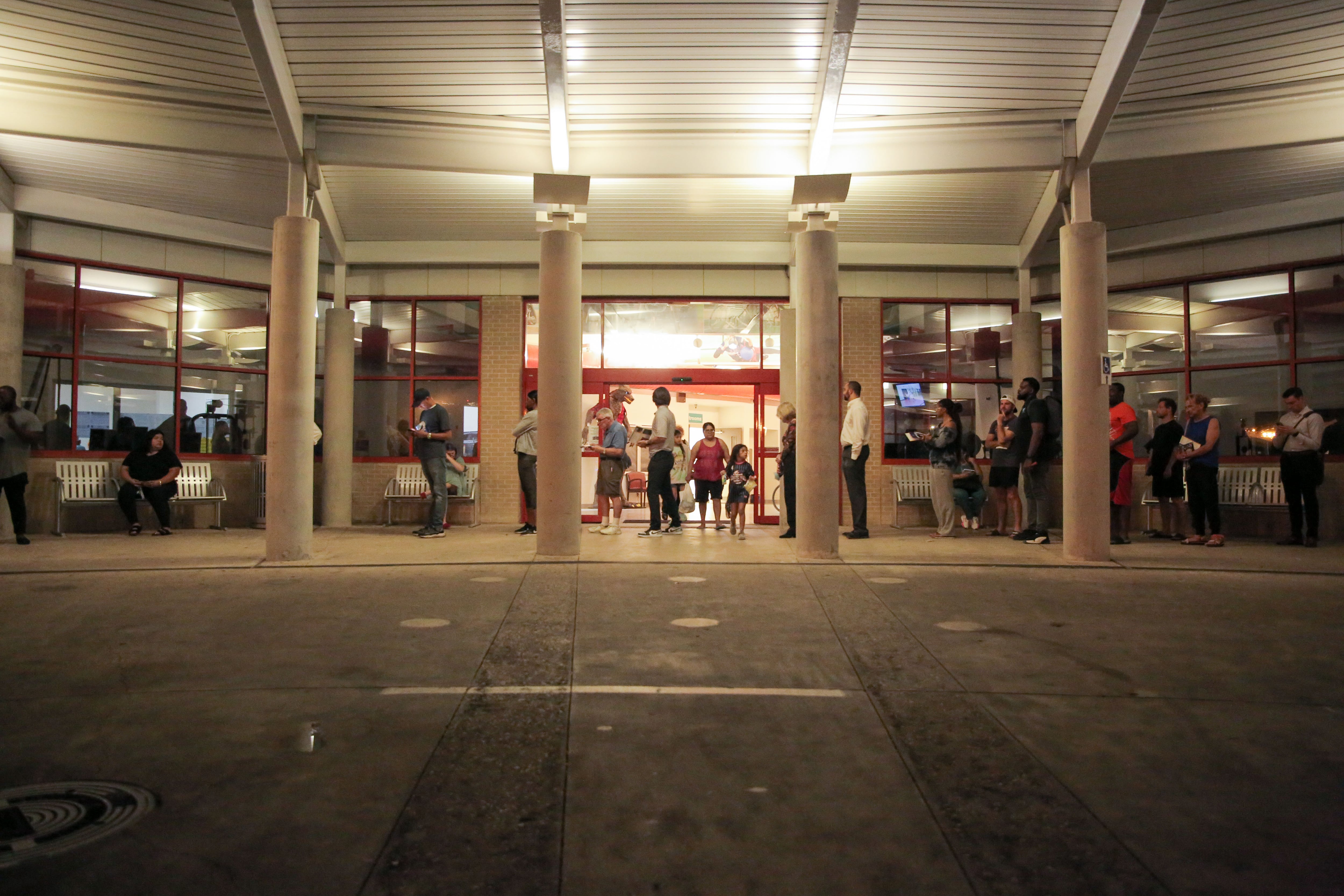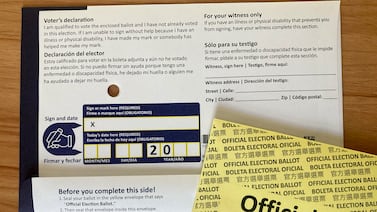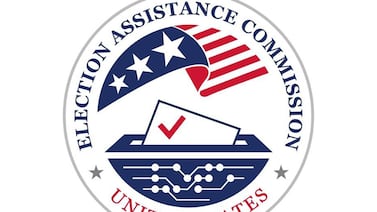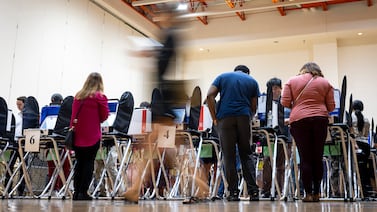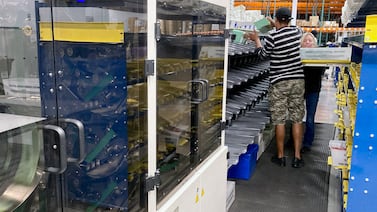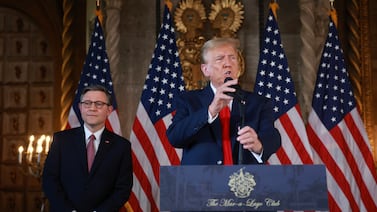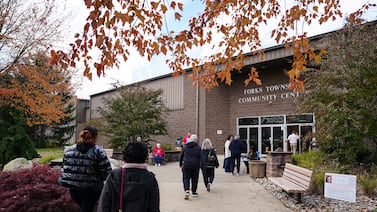The Texas Supreme Court ordered Harris County to include in its certified election results 2,073 ballots cast during an extra hour of Election Day voting.
But the state’s highest civil court also ordered Harris County to determine whether those late-cast ballots would affect the outcome of any races — and kept alive Attorney General Ken Paxton’s challenge to counting them.
Shortly after the court ruling Tuesday, Harris County commissioners certified the results just in time for the state’s canvassing deadline. The court’s ruling was a win, at least temporarily, for local leaders in a fight against Paxton’s attempt to discard thousands of midterm ballots.
In an interview Tuesday, Harris County Attorney Christian D. Menefee said the provisional ballots cast after 7 p.m. Election Day should be counted. Those ballots were cast after a district court judge ordered Harris County polling places to remain open an extra hour because many locations had opened late that morning.
“The votes that were cast during that time period pursuant to a court order are still perfectly legal. And there’s nothing in the law that prohibits them from being counted,” Menefee said. “So our perspective is that those provisional ballots are no different than any other provisional ballots — they are to be counted.”
Harris County officials argued as much in a filing to the Texas Supreme Court on Tuesday. That came one day after Paxton petitioned the Supreme Court to toss the late-cast ballots.
Paxton’s office did not respond to requests for comment Tuesday.
None of the races in the election were impacted by the inclusion of the provisional ballots.
After about a dozen locations in Harris County opened late on Election Day, the Texas Organizing project, along with the Texas Civil Rights Project and the ACLU of Texas, sought a court order to keep polls open after 7 p.m. A district judge granted the order to extend voting hours in Harris County.
On election night, the Texas Supreme Court ordered that any of the ballots cast after 7 p.m. be separated from other ballots. In a filing to the Supreme Court on Monday, Paxton acknowledged issues at polling sites but argued they did not justify extending the time that locations remained open.
“A trial court’s last-minute intervention only made matters worse,” he wrote.
Harris voters relied on a court order that allowed them to legally cast a ballot after 7 p.m. Paxton’s push to toss those ballots was an attempt to disenfranchise them, said Alice Huling, senior legal counsel for the voting rights program at Campaign Legal Center.
“That’s relatively straight forward,” she said. “You’re running an election so that eligible voters can vote. And then you’re taking an action that then takes away the ability of those validly cast ballots to be counted.”
Huling also pointed to a footnote in Paxton’s filing that acknowledges that the Texas election code does consider polls staying open past 7 p.m.
“By including that, it proves the point that the code contemplates this sort of thing happening,” she said.
Harris County was similarly ordered to extend voting in 2018 at nine polling places, but the state does not appear to have challenged those votes at the time. This year, Bell County in Central Texas was also ordered to keep polling places open an extra hour on election night, but elections administrator Desi Roberts told Votebeat and The Texas Tribune on Tuesday that decision had not been challenged by the attorney general’s office or any other party.
The Texas Election Code dictates that votes cast during extended hours should be cast as provisional ballots, but they are largely treated as regular ballots. However, the secretary of state’s office, which oversees elections in the state, advises counties to segregate the actual ballots in the event of an election contest or a legal challenge.
“If there is an election contest or litigation, they know which ones were cast during the extended hours and don’t have to go back through and separate them out again,” Taylor said.
The Texas Civil Rights Project on Tuesday asked the Texas Supreme Court to deny Paxton’s request to discard the late-cast votes.
Hani Mirza, voting rights program director with the Texas Civil Rights Project, said the filings from Paxton and calls for investigations not only intimidate voters but also the people and community members running the election there.
“Voters got equitable relief for those delayed polling locations by getting the extra hour. And that’s how the process is supposed to work. But then this kind of witch hunt that is happening on the part of the state is not in good faith. It’s self-interested. It’s just continuing to target Harris County, to make it tougher for [election workers] to do their job.”
Paxton and Abbott are Republicans, like all of Texas’ other officials elected statewide. Harris, the state’s most populous county, leans Democratic.
“To me, this is nothing more than the attorney general playing politics to dispute the result of Harris County elections,” Menefee, the Harris County attorney, said.
Harris County officials have fielded a barrage of criticism and litigation over how the midterm elections were administered after scattered complaints from voters and news reports painted a picture of “widespread problems” and dysfunction at polling places, some of which opened late and some of which didn’t have enough ballot paper.
The county still can’t describe how pervasive the problems were at its 782 polling places and whether any were severe enough to prevent people from voting. Spokesperson Leah Shah said Tuesday the department is working “at full speed and with urgency” to produce a report for the county’s election commission that assesses the Election Day problems.
Gov. Greg Abbott called for an investigation of the election issues due to potential “malfeasance.” The Harris County district attorney launched an investigation alleging at least 23 polling locations had shortages of paper ballots.
During the Harris County Commissioners Court meeting called to certify the results Tuesday afternoon, about two dozen residents voiced a mix of displeasure and confidence in how the election was handled. Some longtime polling place workers said they saw no serious issues — though some did allege that poll workers were disruptive, unprepared or, in some cases, did not show up to polling places.
Others said they repeatedly faced paper shortages and confusing directions that they said undermined their confidence in the election. There was “egregious mismanagement of this election,” said Cindy Segal, vice chair of the Harris County Republican Party.
Other critics cited the investigations launched by Paxton’s office and Harris County District Attorney Kim Ogg as evidence that there may be widespread fraud.
”We need to set an example to the whole country that we do not allow these things to happen,” said Jimmy Leon, a former Republican Party candidate for U.S. Representative District 18.
Members of the public have called for Harris County election administrator Cliff Tatum’s resignation, and did so again Tuesday, as the county continues to struggle to determine how widespread the issues were on Election Day. This is the first election Tatum has run in Harris County since he was hired in August.
David Becker, election administration expert and founder of the Center for Election Innovation & Research, said the lawsuits and the threats to criminally investigate election workers in Harris County, specifically, appear to be political and could have a “dangerous” impact on election workers there.
“It’s almost as if state officials want Harris County to fail,” Becker said. “They keep changing laws. They keep making it more difficult. They keep failing to provide adequate resources. It just continues to be a tremendous challenge for election officials. And you wonder if at some point this is gonna put these election officials at risk.”
Natalia Contreras is a reporter for Votebeat in partnership with the Texas Tribune. Contact Natalia at ncontreras@votebeat.org.


